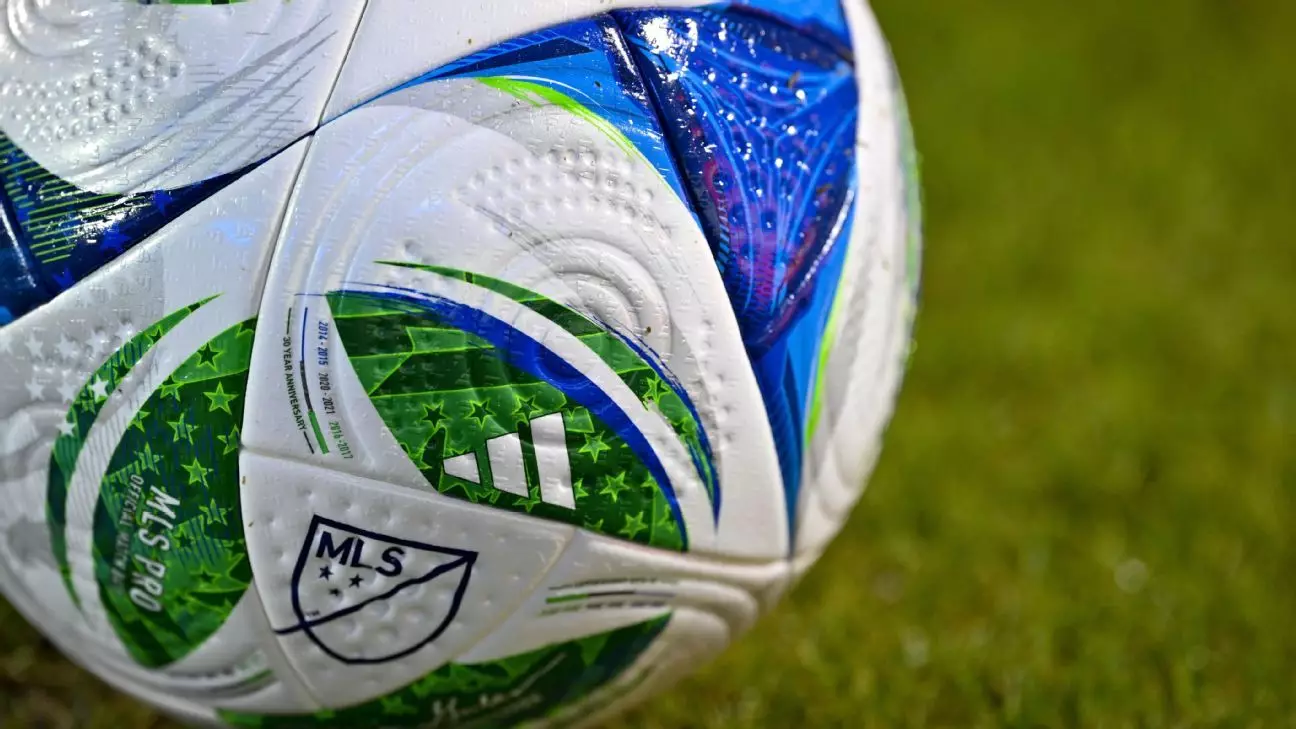The ongoing negotiations between Major League Soccer (MLS) and the MLS Players Association (MLSPA) surrounding player compensation for the FIFA Club World Cup prize money highlight deeper issues within professional sports that transcend mere finances. As these discussions unfold, the tension between league administration and player rights is palpable, raising questions about fairness and respect in sporting environments.
At the heart of the controversy is the reaction of the Seattle Sounders FC players, who publicly protested the financial arrangements during a crucial match. By donning shirts emblazoned with phrases like “Club World Cash Grab” and “Fair Share Now,” they expressed their discontent directly to fans, bringing visibility to a struggle that could easily slip under the radar in the highly commercialized world of soccer. This level of advocacy is not merely symbolic; it exemplifies the urgent need for players to take a stand against what they perceive as unjust treatment by the league.
The Financial Details Unraveled
Initially, players were promised a 50% share of any earnings derived from outside tournaments, capped at $1 million—a sum that rings inadequately small given the immense financial stakes involved in international competitions. Recent reports indicate that MLS’s revised proposal would fix player earnings from the Club World Cup participation at merely 20% of performance-related payments, in stark contrast to what seems equitable. The proposed $1 million participation fee, although seemingly generous, pales against the staggering amounts at play if one considers the $28.65 million package MLS stands to gain from FIFA.
The discrepancy between players’ earnings and league revenue raises valid concerns about equitable distribution in a sport primarily driven by player talent. It’s indicative of a larger dilemma where the fruits of labor are disproportionately allocated, often leaving athletes in the lurch despite their foundational role in generating viewership and income. By proposing a structure that takes a mere sliver of the earnings, MLS sends a disturbing message about its valuation of player contributions to the sport.
The Role of the MLSPA
The MLSPA has emerged as a crucial ally for players, yet even they confront challenges in securing fair treatment. The statement issued in the wake of MLS’s proposal strikes a tone of disappointment and frustration, articulating the MLSPA’s position that the league’s current tactics feel retaliatory and dismissive. This stance signifies a broader struggle not just for immediate financial benefits but also for recognition of the players’ extensive contributions to league success.
Their assertion that the proposed financial structure remains below international standards adds an essential layer to the discourse. In advocating for what is deemed a fair share, the MLSPA is thrusting a spotlight on labor rights within athletics, an area that too often goes overlooked in favor of commercial interests. Their fight illuminates the persistent struggle for athletes to gain leverage in negotiating their worth, especially in scenarios living under the large shadow of corporate profit.
Navigating Labor Laws and Player Rights
Despite current restrictions on work stoppages due to provisions in the collective bargaining agreement, players still possess the right to engage in protected actions under federal labor law. This dichotomy hints at possible tension boiling below the surface, one that could erupt if players feel their rights are irrevocably compromised. The CBA fundamentally limits their options but does not strip them of voice and unity.
As LAFC, Inter Miami CF, and the Seattle Sounders prepare to compete in the Club World Cup, the stakes are incredibly high. The outcomes of these negotiations not only influence their current financial landscape but may also set precedents for future engagements in professional sports. It’s a pivotal moment—something akin to a chess game where each side must navigate their moves carefully to avoid enacting a stalemate that leaves players fighting for dignity and respect well beyond the field.
The problems at hand create an unsettling environment, potentially stifling morale among players who should be focusing on their performance in a prestigious tournament. Yet, ironically, this unrest could function as a catalyst for greater change, pushing players, their union, and the league to reassess and ultimately redefine the landscape of player representation and compensation in the years to come.


Leave a Reply